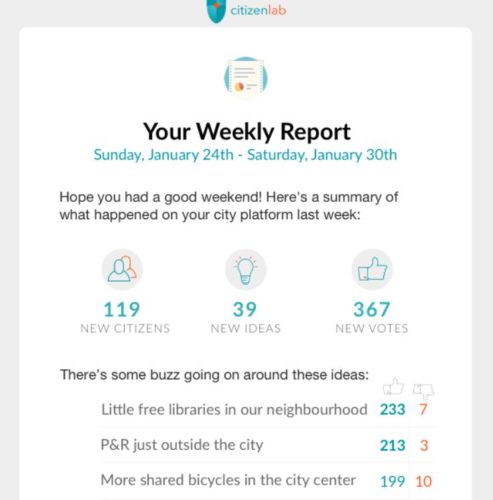CitizenLab offers local governments a platform for engaging their citizens in local decision-making. It was founded in 2015 by Wietse Van Ransbeeck, Aline Muylaert and Koen Gremmelprez in Brussels, Belgium, while they were still university students disenchanted at the lack of democratic participation in decision-making and place-shaping.
Unlike many digital democracy and participation platforms, CitizenLab is a for-profit company with an embedded and primary social mission. It offers software-as-a-service (SaaS) to governments, charging an annual subscription fee which varies depending on the services and functionalities used and the size of the city. While the cloud-based software, data and visual representation of data is their primary business, CitizenLab also offers toolkits and guides to cities to help make engagement activities a success.
CitizenLab’s rapid growth has been made possible by a number of factors, including its sustainable revenue stream, the variety of skills within the team – including technological and communication skills – and tangible “success stories” to build and maintain citizen engagement.



